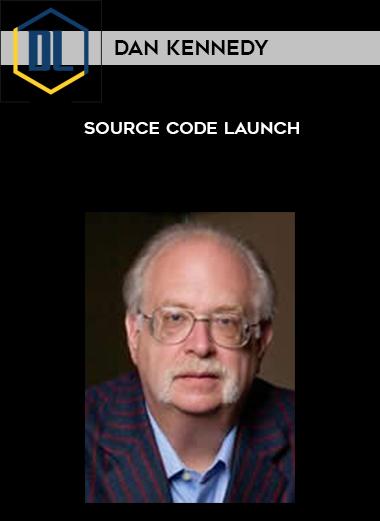David Crow – The Advanced Aromatherapy Training
$297.00 Original price was: $297.00.$43.00Current price is: $43.00.
Product Delivery : Instant Deliver
David Crow – The Advanced Aromatherapy Training
Salepage: David Crow – The Advanced Aromatherapy Training
Are you ready to discover how to use essential oils to enhance your immune system, cultivate more life force, dispel inflammation and relax your body and mind?
Discover practical, time-tested healing methods for using essential oils to restore your energy, increase your mental focus, foster optimal wellness and advance spiritually.
During this 5-month program, you’ll discover:
- The nature of essential oils according to Chinese and Ayurvedic medicine
- How to perceive the energies and elements of essential oils using “contemplative aromatherapy”
- The complex issues of quality control in the essential oil industry
- The differences between medical and non-medical aromatherapy
- Myths and fraudulent claims about essential oils
- How to use essential oils and aromatherapy for treating specific health conditions, including respiratory, digestive, hormonal, neurological and musculoskeletal
- How to combine important herbs with aromatherapy treatments for enhanced effects
- How to use aromatherapy for special needs including children, during pregnancy and for the elderly
- Essential oils and aromatherapy for women’s health concerns
- The benefits of aromatherapy for enhancing memory, concentration and cognitive functions
- Aromatherapy for pain and inflammation
- Essential oils for reducing stress and improving sleep
What You’ll Discover in These 5 Months
Session 1: The Nature of Essential Oils (June 28)
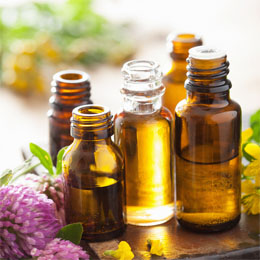
Aromatic plants produce essential oils for their own biological purposes, yet they have great benefits when we use them for our own health. By understanding the cosmological elements and energies that are concentrated in plants, we can learn to safely use their oils for corresponding purposes in the human body.
In this module, you’ll discover:
- Why plants produce essential oils, and what that means to human health
- Extracting and distilling methods
- Essential oils as the prana (life force) of plants and its relationship to healing
- The solar and lunar energies of essential oils and their therapeutic applications
- Essential oils and the five elements according to Ayurvedic and Chinese medicine
- How to directly perceive the energies, elements and therapeutic properties of essential oils
Session 2: An Overview of Aromatherapy (July 5)
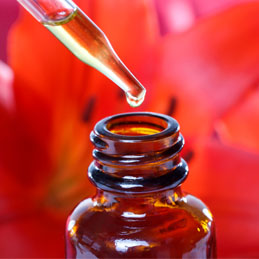
Although the use of aromatic plants as healing remedies is ancient, the use of essential oils to enhance our wellbeing is a relatively modern development. Because of their extremely concentrated nature, essential oils must be used with a high level of knowledge and caution to avoid causing adverse reactions; when used safely, aromatherapy can support health and wellness in numerous important ways.
In this module, you’ll discover:
- The differences between medical and non-medical aromatherapy
- Quality control issues in the essential oil industry
- Myths and fraudulent claims about essential oils
- Toxicology and adverse reactions to essential oils
- The differences between essential oils and other forms of herbal medicine
- Safe and unsafe uses of essential oils
- Carrier oils and aromatic waters
Session 3: Therapeutic Categories of Essential Oils (July 12)
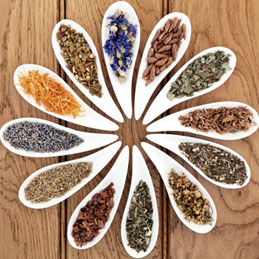
Because many essential oils are from similar plant species and have similar chemistry, they can be classified into broad categories of therapeutic functions. By organizing the oils into these groups, we can learn and remember a large number oils quickly and easily.
In this module, you’ll discover:
- The healing effects of medicinal and exotic flowers
- Sacred woods and precious resins
- The dangers and powers of spice oils
- The respiratory and mental benefits of conifer and eucalyptus oils
- Citrus oils for uplifting moods
- Essential oils with unique antimicrobial powers
- Chemotypes and ecotypes of essential oils
Sessions 4 & 5: Aromatherapy for the Respiratory System (July 19 & 26)
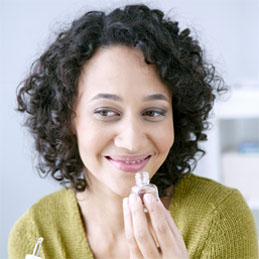
Aromatic plants have been used since antiquity for treating conditions of the lungs and counteracting airborne pathogens. Today, aromatherapy is well known for its highly beneficial effect on the respiratory system. Because of their decongestant, expectorant, anti-microbial and anti-inflammatory powers, many essential oils are the first line of treatment for common health challenges.
In this 2-session module, you’ll discover:
- Contagion and the antimicrobial powers of essential oils
- The historical use of aromatic plants for epidemics
- In vitro and in vivo research on the antimicrobial effects of essential oils
- How to use essential oils according to Ayurvedic and Chinese principles for treating respiratory conditions
- The therapeutic categories of essential oils for respiratory health
- Aromatherapy for immune enhancement
- Major chemical compounds in essential oils responsible for respiratory benefits
- Aromatherapy for the treatment of colds and flus, sinusitis, bronchitis, asthma and allergies
- Aromatherapy for smoking cessation and nicotine withdrawal
- Specific methods of applying essential oils for respiratory conditions
- How to combine essential oils and herbal medicine for the treatment of respiratory conditions
Sessions 6 & 7: Essential Oils & the Digestive System (August 9 & 16)
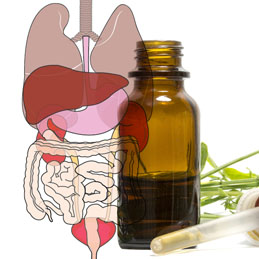
Aromatic herbs and spices are some of the best and safest treatments for digestive problems, but the internal use of essential oils from those plants is extremely dangerous. Knowing how to use highly diluted preparations of oils, or preferably, the herb in place of its essential oil, is one of the most important lessons for an aromatherapist.
In this 2-session module, you’ll discover:
- How to use essential oils according to Ayurvedic and Chinese principles for treating digestive disturbances
- Dangers of internal consumption of essential oils
- Therapeutic categories of essential oils and aromatic plants for digestive health
- Aromatic herbs and preparations for food allergies, IBS, constipation, anorexia, indigestion, gas and bloating and other digestive problems
- How to combine essential oils and herbal medicine for the treatment of digestive conditions
- An understanding of the complexities of diagnosing and treating parasites
- Essential oils and aromatic preparations for dental and oral health
Session 8: Aromatic Treatments for the Nervous System (August 23)
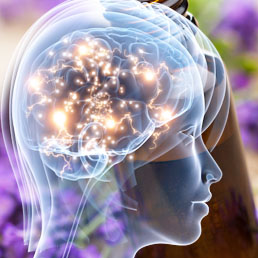
Inhaling the fragrance of essential oils has a direct influence on the limbic system of the brain, and is therefore beneficial for a wide range of emotional, mental and cognitive functions. When used in conjunction with herbal medicine, these effects can be enhanced with excellent therapeutic results.
In this module, you’ll discover:
- Essential oils for concentration, memory and cognitive function
- Neuro-degeneration and chemosensory disorders
- How to use fragrance to restore olfactory function
- How to combine essential oils and herbal medicine for the treatment of headaches and migraines
- Essential oils and aromatic preparations for shingles, post-herpetic pain and nerve inflammation
Session 9: Essential Oils for the Musculoskeletal System (August 30)
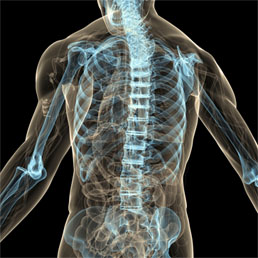
Aromatic plants have a long history of use in medicinal preparations for pain, injuries and inflammation. Modern research is now confirming the effects of the aromatic compounds from these plants. When used in simple, but safe, preparations, essential oils can be highly therapeutic either as a primary or a complementary treatment.
In this module, you’ll discover:
- Essential oils and aromatic preparations for sprains, strains and soft tissue injuries
- How to combine essential oils and herbal medicine for autoimmune inflammation, degenerative joint problems and fibromyalgia
- Aromatic preparations for protecting the joints and muscles
Sessions 10 & 11: Essential Oils for Women’s Health (September 13 & 20)
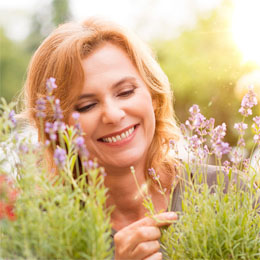
Aromatherapy can have numerous benefits for women’s health and wellbeing, especially when combined with the support of herbal medicines. Essential oils, from flowers especially, are known to have a unique biological relationship with female hormonal balance and biorhythms.
In this 2-session module, you’ll discover:
- The unique biological relationship between flowers and women’s health
- Essential oils and aromatic preparations for the treatment of dysmenorrhea, PMS, menopausal symptoms and other gynecological conditions
- Regulation or disruption of glandular functions with essential oils
- How to combine essential oils and herbal medicine for women’s health concerns
- Botanical perfumes and romantic moods
Sessions 12 & 13: Aromatherapy for Emotional Wellbeing (September 27 & October 11)

Because of the direct links between fragrance, the limbic system, moods and mental states, aromatherapy is a highly effective treatment for emotional wellbeing, either alone or in conjunction with other healing modalities. Understanding how these oils work, according to traditional Asian medical concepts, and knowing which oils are consistently the most psychoactive, gives the aromatherapist excellent tools for supporting emotional and mental healing.
In this 2-session module, you’ll discover:
- The links between fragrance, consciousness and the limbic system
- The effects of botanical aromas on Shen (spirit) according to Chinese medicine
- Aromatherapy for sleep, dreams and mental purification
- Aromatherapy treatments for depression, Seasonal Affective Disorder and grief
- Essential oils with renowned anxiolytic and calmative powers
- Unique psychoactive oils and aromatic preparations
- How to combine essential oils and herbal medicine for emotional balance and wellbeing
Session 14: Aromatherapy for Meditation & Spiritual Practices (October 18)

The use of aromatic plants in ritual and ceremony is an extremely ancient practice, yet is still found in every spiritual and religious tradition around the world. The essential oil compounds released by burning sacred woods and resins have a pronounced effect on consciousness, purify the atmosphere of microbial toxins, and often produce significant spiritual, and even magical, benefits.
In this module, you’ll discover:
- The history of the sacred botanical aromatics
- Traditional and modern methods of using woods, resins, and botanical incenses
- Aromatic rituals and ceremonies for removing obstacles and manifesting intentions
- The psychoactive compounds found in sacred scents, and their unique effects on consciousness
- The purifying effects of sacred scents: antimicrobial, mental and spiritual
Session 15: Essential Oil Uses for Pregnancy, Children & the Elderly (October 25)

The extremely concentrated nature of essential oils necessitates that they be used with caution and in special preparations for treatment of sensitive people, including pregnant women, children and the elderly. When the correct species of oils are used in correct dilutions, aromatherapy can be safe and effective for these people, and a very beneficial modality for numerous health challenges.
In this module, you’ll discover:
- Safe practices of aromatherapy during pregnancy
- The benefits and challenges of using essential oils for the elderly
- Simple and safe aromatic treatments for common pediatric problems
- Aromatherapy and herbs for ADHD and learning disabilities in children
- Essential oils and aromatic treatments to reduce symptoms of Alzheimer’s and Parkinson’s
Session 16: Combining Essential Oils & Aromatherapy With Allopathic Treatments (November 8)
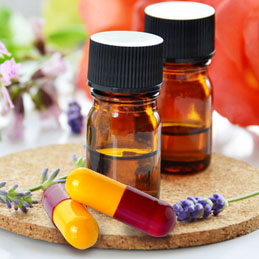
Large numbers of people use prescription medications for complex health challenges, but would like to incorporate natural treatments. By understanding the potential problems of herb/drug interactions, essential oils and aromatherapy can be safely used with great benefits for reducing many symptoms that allopathic medicine does not treat effectively.
In this module, you’ll discover:
- Herb/drug interactions with essential oils
- Estrogenic and estrogen-like effects of essential oils
- The benefits of aromatherapy during chemotherapy and radiation treatments
- Aromatic plants and essential oils for post-antibiotic recovery of digestive and respiratory health
Session 17: Essential Oils for Skin Care (November 15)
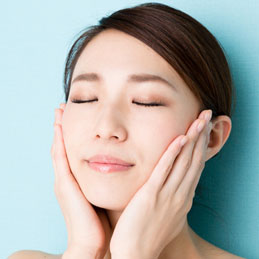
Like all other aspects of aromatherapy, essential oils can be either beneficial or problematic when used for skin care. Some specific species of oils are renowned for their skin healing powers, and when used appropriately can produce excellent results even for sensitive people.
In this module, you’ll discover:
- Compatibility and incompatibility of essential oils with skin
- Essential oils and aromatic preparations for skin conditions such as acne and eczema
- Important oils and preparations for wound healing and scar tissue
- Essential oils and aromatic preparations for fungal infections
Session 18: Rare & Unusual Essential Oils & Aromatics (November 29)
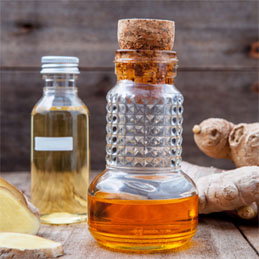
Modern aromatherapy is based on the use of a relatively small number of well-known essential oils, yet a larger number of lesser-known oils are available. Even though they are not used as extensively, we can still find enough information from various sources to safely incorporate these unique oils into our aromatic pharmacopeia.
In this last module, you’ll discover:
- Unusual essential oils known in Corsican aromatherapy, such as bupleurum, samphire and lentisque
- The potential benefits of emerging new essential oils, such as moena
- Rare species of common oils such as eucalyptus
- Rare and precious floral extracts such as gardenia, tuberose and lilies
About David Crow

David Crow, LAc is one of the world’s foremost experts and leading speakers in the field of botanical medicine and grassroots healthcare. He is a master herbalist, aromatherapist and acupuncturist with over 30 years experience and is an expert in the Ayurvedic and Chinese medical systems.
David is a renowned author, a poet and is the founding director of Floracopeia Aromatic Treasures. Floracopeia was created as a way to help preserve and promote the use of botanical medicines as solutions to solving numerous interrelated global problems: lack of healthcare, poverty, environmental destruction and loss of ethnobotanical knowledge.
David has presented his vision of grassroots healthcare, preservation of botanical medicines and the use of plants for ecological restoration to hundreds of audiences, ranging from small private groups to conferences and lecture halls to a panel discussion with the Dalai Lama broadcast internationally to millions of viewers.
He has given numerous keynote speeches, taught at conferences and colleges of naturopathic, Chinese and Ayurvedic medicine, and been interviewed on numerous radio programs. His articles and excerpts from his book have been published in several magazines, and In Search of the Medicine Buddha has been translated into three foreign editions. David travels and teaches throughout the world. Through his visionary synthesis of medicine, ecology and spirituality, he has helped transform the lives of thousands.
Readmore about: David Crow
Related products
Instant Delivery
Total sold: 2
Instant Delivery
Total sold: 2
Metaphysical & Self Help
Total sold: 1
Instant Delivery
Instant Delivery
Total sold: 1
Instant Delivery
Instant Delivery
Total sold: 1
Instant Delivery
Total sold: 5









